Behind the Trump vs. Bank of America and JP Morgan Clash
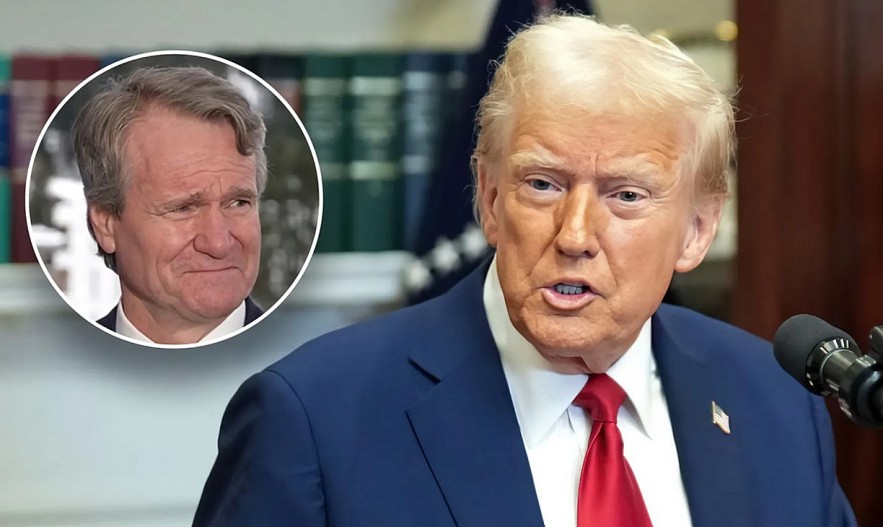 |
| Trump confronts Bank of America CEO for not taking 'conservative business' |
The recent clash between former U.S. President Donald Trump and banking giants Bank of America and JP Morgan sheds light on a growing tension between political ideology and corporate practices. Trump’s accusations of discrimination against conservatives by these institutions have sparked debates on the role of banks in supporting diverse political and ideological perspectives. This controversy also highlights larger concerns about how businesses navigate the increasingly polarized political landscape in the United States.
The Origins of the Trump-Bank Conflict
During a virtual appearance at the World Economic Forum in Davos, Switzerland, on January 23, 2025, Donald Trump made headlines by accusing Bank of America and JP Morgan of discriminating against conservatives and right-leaning organizations. In response to a question from Bank of America CEO Brian T. Moynihan about his economic vision for the United States, Trump diverted the conversation, alleging that major banks were systematically excluding conservative voices and businesses.
Trump specifically mentioned that conservatives have faced difficulties in conducting business with these banks, calling their practices “wrong” and urging the CEOs of Bank of America and JP Morgan to rectify the situation. His remarks reflect broader allegations made by congressional Republicans and conservative activists, who claim that financial institutions are "de-banking" certain companies and individuals based on political ideologies.
This sentiment has grown in recent years, as conservative groups, gun manufacturers, fossil fuel companies, and religious organizations allege that banks and other corporations have denied them services or canceled accounts due to political or social pressure. Trump’s public criticism amplifies these concerns, framing the issue as one of ideological discrimination and economic fairness.
Bank of America and JP Morgan Respond
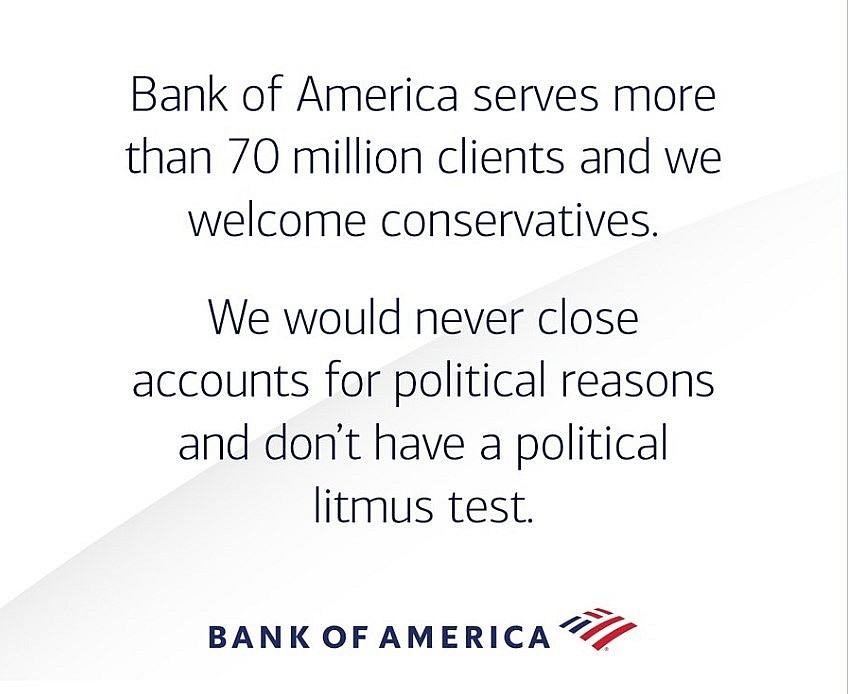 |
| Bank of America issued a statement on social media platform X |
Following Trump’s accusations, both Bank of America and JP Morgan issued statements rejecting the claims of political bias.
Bank of America’s statement emphasized that the institution serves a diverse clientele and would never close accounts for political reasons. “Bank of America serves more than 70 million clients, and we welcome conservatives. We would never close accounts for political reasons and don’t have a political litmus test,” the bank wrote on the social media platform X (formerly Twitter).
Similarly, JP Morgan responded by stating that their policies are guided by law and regulatory frameworks, rather than political ideologies. A spokesperson for the bank noted in an email to Business Insider, “We have never and would never close an account for political reasons, full stop. We follow the law and guidance from our regulators and have long said there are problems with the current framework Washington must address.”
Both banks’ responses appear aimed at reassuring the public that their operations are impartial and non-discriminatory. However, the controversy has raised questions about whether such assurances are sufficient to address the broader concerns of ideological bias in corporate decision-making.
The Rise of "De-Banking" Accusations
Trump’s comments come against the backdrop of a growing narrative among conservatives about "de-banking" — the alleged practice of financial institutions denying services to individuals or businesses based on their political or social stances.
In recent years, several high-profile incidents have fueled this narrative. For example, some conservative groups have accused banks of refusing loans to gun manufacturers due to public pressure from gun control advocates. Similarly, fossil fuel companies have claimed that banks are increasingly hesitant to finance projects related to oil and gas, citing environmental, social, and governance (ESG) initiatives as the driving force behind these decisions.
Religious organizations and individuals with controversial social views have also reported being denied banking services, with some alleging that their accounts were closed without explanation. These cases have contributed to the perception that large financial institutions are aligning with progressive social and political agendas, leaving conservative voices marginalized.
Critics of the "de-banking" narrative argue that banks have the right to make business decisions based on risk, reputation, and legal compliance. For example, refusing to finance certain industries may align with broader ESG goals or reflect concerns about long-term profitability. However, for conservatives like Trump, these practices are viewed as politically motivated and discriminatory.
The Political and Economic Implications
The Trump vs. Bank of America and JP Morgan conflict underscores the intersection of politics and economics in today’s polarized society. As banks and corporations increasingly face pressure to take stands on social and environmental issues, they find themselves navigating a delicate balance between maintaining neutrality and responding to societal expectations.
For conservatives, the allegations of discrimination represent a broader struggle against what they perceive as “woke capitalism” — the idea that corporations are prioritizing progressive social values over fairness and neutrality. This perception has fueled calls for greater regulatory oversight of financial institutions to ensure that businesses and individuals are not excluded based on their political or ideological beliefs.
From an economic perspective, the controversy highlights the risks of politicizing corporate practices. If businesses are perceived as favoring one political ideology over another, it could erode trust among consumers and investors. For financial institutions, maintaining neutrality is not only a matter of reputation but also critical for ensuring broad access to services and fostering economic growth.
Challenges for Banks in a Divided Society
The controversy also raises important questions about the role of banks in shaping societal values. Should financial institutions be neutral entities that serve all customers regardless of ideology, or do they have a responsibility to align with broader social and environmental goals?
For banks like Bank of America and JP Morgan, navigating these questions is particularly challenging. On the one hand, they face pressure from shareholders, advocacy groups, and regulators to adopt ESG principles and take stands on social issues. On the other hand, they risk alienating conservative customers and businesses who feel excluded by these practices.
The issue is further complicated by the lack of clear regulatory guidance on how banks should balance these competing priorities. While banks are required to comply with anti-discrimination laws, there is little consensus on what constitutes ideological discrimination or how to address concerns about “de-banking.”
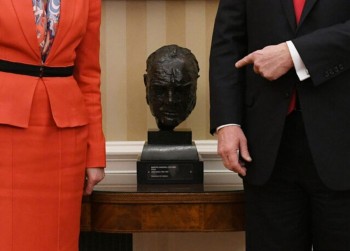 Trump Brings Back The Churchill Bust to the Oval Office: A Symbol of Political and Diplomatic Significance Trump Brings Back The Churchill Bust to the Oval Office: A Symbol of Political and Diplomatic Significance KnowInsiders explores the intriguing journey of the Churchill bust, the symbolism it carries, and the broader implications of its movements between presidencies. |
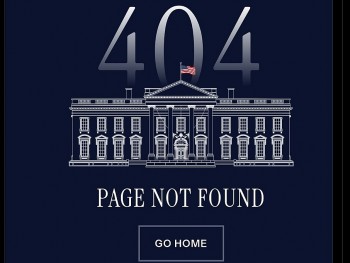 Fact-Check: U.S Constitution Removed From White House Website Fact-Check: U.S Constitution Removed From White House Website Fact-Check: Was the U.S. Constitution Removed from the White House Website After President Trump’s Inauguration? |
 The Full Text: Joe Biden's Outgoing Letter to Donald Trump The Full Text: Joe Biden's Outgoing Letter to Donald Trump In his final letter to President Donald Trump, former President Joe Biden wished him "may God bless you and guide you" before leaving the Oval ... |
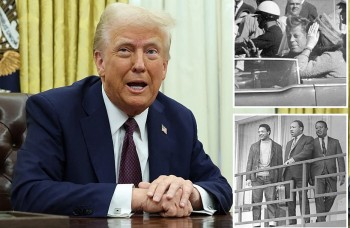 What Might the Assassination Files Reveal? Trump Orders Release of JFK, RFK and MLK Records What Might the Assassination Files Reveal? Trump Orders Release of JFK, RFK and MLK Records Long-secret documents pertaining to the murders of President John F. Kennedy, his brother Robert F. Kennedy, and civil rights activist Martin Luther King Jr. were ... |























